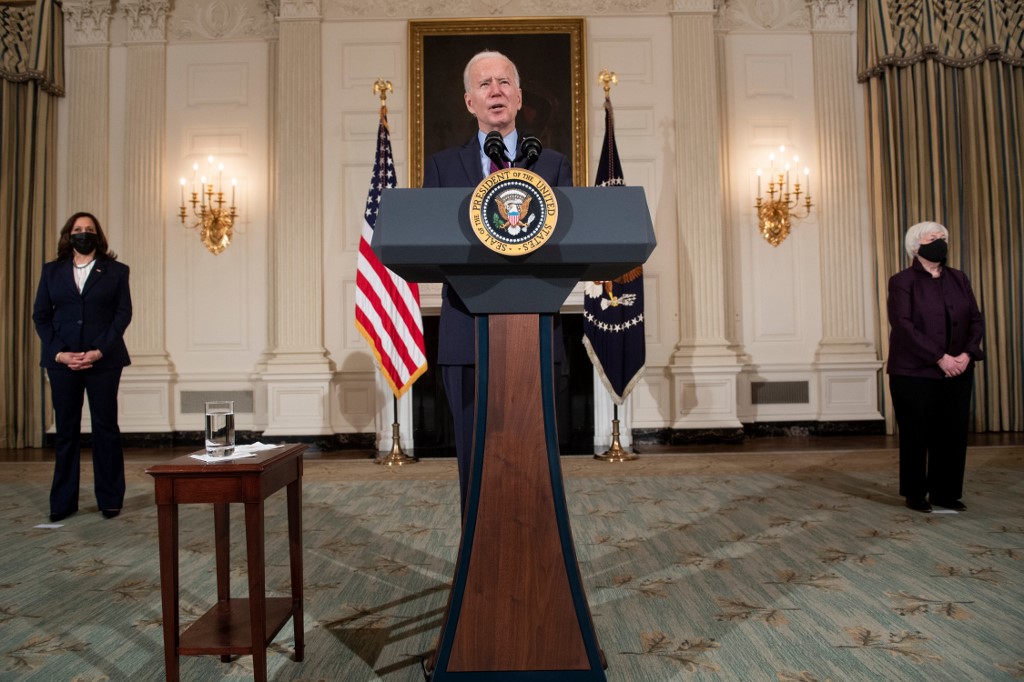Cevheri Güven
Turkish President Recep Tayyip Erdoğan has repeatedly signaled his willingness to cooperate with the new administration in Washington. President Joe Biden, however, has still not talked to him months after his election.
Erdoğan and his spokesperson, İbrahim Kalın, have regularly declared that they are prepared to work with Washington. Most recently Erdoğan addressed a meeting of the Turkish American National Steering Committee (TASC), where he admitted that the two countries have been facing challenges in their relations, announcing that his government is seeking ways to cooperate with the new administration.
Erdoğan has also taken concrete action in line with his declarations, which were found insufficient by diplomacy experts.
A symbolic move related to the Halkbank case
What concerns Erdoğan the most about his dealings with Biden is arguably a New York court case in which Turkish state lender Halkbank is accused of violating US sanctions on Iran. Rumors have been circulating that the bank could be facing up to $20 billion in fines amid Erdoğan’s efforts to mitigate the current troubles in Turkey’s economy.
This week the Turkish president took a symbolic step and acknowledged the resignation of Hakan Atilla, the head of the İstanbul Stock Exchange (Borsa İstanbul). Many have claimed that Atilla was compelled by Erdoğan himself to step down.
Atilla was arrested by the FBI during a business trip to the US as Halkbank vice president. He stood trial for his role in the violation of sanctions on Iran and was sentenced to 32 months in prison. During his trial Atilla did not made any statements that would expose Erdoğan. After serving his sentence, in July 2019 he returned to Turkey, where he was welcomed as a hero by the Erdoğan administration. Berat Albayrak, then-finance minister and Erdoğan’s son-in-law, met Atilla at the airport and referred to him as his “brother.” Afterwards, Atilla was rewarded by being installed at the helm of Borsa İstanbul.
Within a year and a half Atilla turned from a hero into an unwanted burden following the change in administration in Washington, similar to a number of other bureaucrats that Erdoğan’s government allegedly used in circumventing US sanctions. The prevailing opinion in Ankara is that the sidelining of Atilla is a gesture to the Biden administration.
Rhetoric of return to democracy
Erdoğan has also announced the “Human Rights Action Plan” in an apparent effort to signal good will to Biden, who has in the past criticized him over his government’s human rights record. The plan puts an emphasis on norms set out by the European Court of Human Rights (ECtHR). Yet, Turkey’s authorities continue their noncompliance with ECtHR decisions for the release of political prisoners.
In an interview with Reuters, businessman and civil society leader Osman Kavala, who has been behind bars for more than three years, said the Turkish judiciary is tasked with stamping out dissent and that the government’s plan does not give him any hope.
The search for alternative formulas for the S-400 impasse
Another challenge in bilateral ties is Ankara’s purchase of the Russian-made S-400 missile defense system, causing a rift with Washington, which feared a possible Russian subterfuge of NATO systems that Turkey is using. Erdoğan’s government has been seeking ways to soothe US fears, with Defense Minister Hulusi Akar stating last month that the S-400s could be stored in a hangar. In addition presidential spokesperson Kalın ruled out integrating the S-400s into NATO systems. Kalın also announced that Turkey was interested in purchasing the US-made Patriot missile defense system.
According to diplomacy observer Zeynep Gürcanlı, while Erdoğan has been striving to demonstrate his openness to cooperation with his announcements and actions, he will have a credibility problem.
Erdoğan had also announced judicial reform plans amid tensions with the European Union in 2019. Yet, the number of Turkey’s political prisoners has hit record highs over the past few years.

